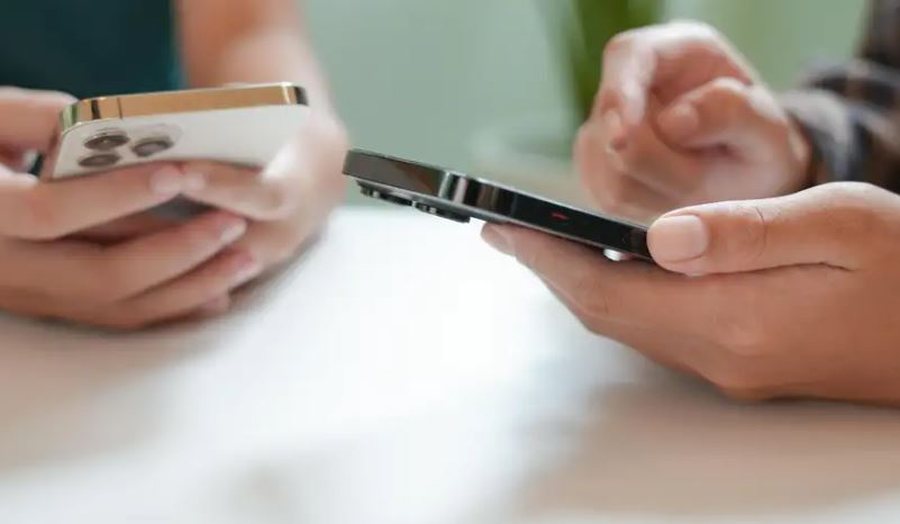
Nearly half of young people would rather live in a world without the internet, according to a British survey. This unusual statement is partly reflected in new trends.
The so-called The Offline Club has almost 530,000 followers on Instagram. This sounds almost ironic, because the aim of the Offline Club is actually to consciously disconnect from social networks – and therefore away from Instagram. Running this account gives you an "unusual" feeling, say the three founders Jordy, Ilya and Valentijn in their self-introduction. The three young people from the Netherlands want to "restore humanity to today's isolated and screen-obsessed society" with the Offline Club – as they describe it in English.
For about a year now, they have been organizing meetings with many others who think the same way: There are no smartphones or laptops at these meetings. "Are you ready to ditch your phone?", says a posted reel. And it seems that more and more people are willing to turn off their cell phones sometimes - at least during the Offline Clubs meeting. They mostly turn off their phones for a few hours, but sometimes for several days in a row. Instead of constantly staring at their smartphones, during the meetings they read, play, do manual labor or relax. Just like in the old days, when there were no smartphones, Offline Club advertises.
This concept from the Netherlands has spread throughout the world within a year. Amsterdam was among the first places. But London, Paris, Milan and Copenhagen followed. The first meetings of this kind have also been held in Germany. More and more restaurants or clubs are also being added, where customers are asked to leave their mobile phones at home.
Constantly online – willingly or unwillingly
With Offline Clubs, the founders seem to have touched a nerve. Because young people often find it difficult to disconnect from their mobile phones, despite the possibility of configuring the mobile phone, which can limit the time of use. Although welcomed on social networks, the return to app-free flip phones, known in German slang as "boring phones", has not been able to displace smartphones.
According to data from the German technology branch bitkom, by the end of 2024, 16 to 29-year-olds will spend more than three hours a day on their smartphones. This makes them the most time spent on their smartphones compared to other age groups. But the amount of time spent on smartphones may be even longer than is currently known.
Study: Nearly half want a world without the internet
Many young people actually want to spend as little time on their smartphones as possible. According to a new survey by the British public services organization British Standards Institution (BSI), almost 70 percent of 16 to 21-year-olds feel worse when they spend most of their time on social media. For this reason, half would prefer a "digital lock" that would limit access to various apps and websites after 10 p.m. 46 percent even say that they would prefer to be young in a world without the Internet.
The study surveyed 1,293 young people. The results are consistent with other surveys, such as a survey conducted at the end of 2024 by the American polling institute Harris Polls. In this survey, many young people expressed the wish that Tiktok, Instagram or X had never been invented at all.
How is politics protected?
This could be grist for the mill of some politicians – although the efforts against the backdrop of strong demands from young people seem to be lame. British Technology Minister Peter Kyle, according to the Guardian newspaper, hinted (20.05.2025), that he would consider the possibility of mandatory bans on these systems at certain times. Norway will raise the age of consent to use social networks from 13 to 15.
Australia leads the world in this, raising the age of consent to use social media to 16 by the end of 2024. Other countries, such as Denmark, have changed their education policy by almost completely banning tablets and smartphones in schools.
Depressed by your cell phone?
Excessive smartphone use, meanwhile, is linked to various psychological problems such as depression, feelings of fear, stress, sleep disorders and addiction. In a study published earlier this year in the scientific journal BMC Medicine, symptoms were reduced by 27 percent after reducing smartphone use. According to the OECD, the mental health of young people has deteriorated dramatically in the last 15 years. A trend that has been reinforced by the pandemic. During this period, there has also been an extraordinary increase in media use. However, the study has so far not been able to prove a clear causality between these developments, the OECD says./ DW (A2 Televizion)











